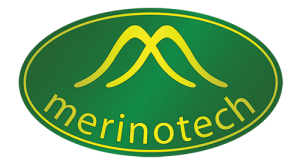Challenges of the Future
Challenges of the future by Kevin Bell
As in all WA agricultural industries the over ridding challenge will be to continue improving productivity at the accepted rate of at least 3% whilst:
- reaching and maintaining sustainability
- providing the basis for vibrant and fulfilling communities of people
The farming systems now practised in the wool belt of Western Australia are demonstrably very productive and quite sustainable with the addressing of hydrological issues. The continuing productivity improvements demonstrated by monitored group performance attest to improving rather than degrading resources.
Sheep and wool production have been the basis for the development of land and communities and will most certainly continue to be the source of employment and wealth for individual families and communities. Long-term meat and wool prices are more than adequate for the industry, and optimism is justified given the excellent resources currently in place.
People: the farmers – young, educated, progressive, receptive, enthusiastic.
Sheep: the basis of the fibre produced. Some excellent genetic material is available and easily identified.
Land & Farm Infrastructure: Hugh investments in place; by and large substantial further capital investment not required. Market prospects globally with all these in place, the challenge is to maintain research facilities, a chequred history, but reasonable links in place.
Research People & Physical facilities: a vital resource. Elite people must be identified, encouraged and empowered.
With both the above, a critical mass is necessary to foster scientific excellence and innovative partnerships and industry.
In Summary – the challenge is to use the resources powerfully, to facilitate the great ability and energies already present in sheep and wool growing communities.
Wool industry economic forces have already exerted great changes in attitudes amongst wool growers, and the “people” resource has changed very quickly, quite unheralded, in the last decade. What was the top 20% is now the average!
The people are more than ready to meet challenges, as they have very effectively to date; perhaps “opportunities” is a better word.
Key Opportunities
- Continue to increase pasture production
- Increase pasture utilization by intelligent use of pasture species, livestock grazing, fertilizer and pest control strategies.
- Realise productivity gains from unclouded identification and use of current genetic resources, and from realizing optimum genetic progress with objective measurements.
- Deal with sheep health threats to sustainability and productivity – particularly internal parasites.
- Recognise the place of sheep in Western Australia’s whole farming systems, the increasingly important complementary roles of pasture and crop production, and the necessity to produce sheep and wool from this complex base.
- Revitalise existing research facilities by creating research/farmer partnerships. Engender the snowballing effect of research/demonstration/discussion project design.
- Review existing resources (e.g. base flocks, Rylington Merino, Staple strength flocks) from a West Australian and Australian perspective.
- Further develop research alliances amongst the State’s major institutions. Focus on people rather than institutions in research funding and project management.
- Make Western Australia a center of professional sheep industry excellence in Australia; to match its acknowleged farming excellence. With existing people and structures, this should be achievable.
This in turn will play a large part in restoring to West Australia its fair share of national funds, to which the state contributes.
Kevin Bell is a private consultant, working in the Australian sheep and wool industry from his home/office base in Kojonup, Western Australia. After graduating with honours in Veterinary Science from the University of Melbourne, he spent 3 years in post graduate research before joining his veterinarian wife Jo in their shared roles of private practice and establishing a family. For the next 5 years they worked in South Korea as veterinarians and farm management consultants, the first 4 on a large agricultural development project, “Isadore Development Association” on Cheju Island, and the final year on the Korea Australia Sheep Demonstration Farm at Unbong, in Cholla Buk Do. In 1997 the family moved to Kojonup to enable Kevin to run a pilot project on cost effective health and production consultancy with local sheep farmers.
This culminated in his PhD in 1986, after which he has continued on in private consultancy in Kojonup, with a group of 40-50 farmers. Being the first in his profession to offer this service to the sheep industry, he has been in demand as a conference speaker, nationally and internationally, extending the concept to veterinarians and farmers. Over the past 3-4 years, he has served on a number of research and planning committees relating to the wool industry, currently sheep/cereal zone consultant on the Woolmark Company Zone Advisory Committee.
